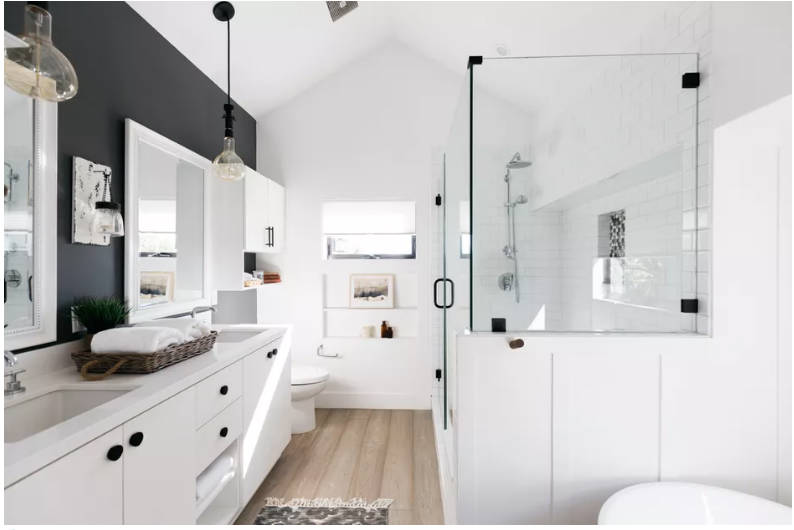Industria ti' u k'óoben yéetel El wichkíil Medios Comunicación k'ajle' a'alajil t'aan ti' u k'óoben yéetel El wichkíil

The United States Wants To Take Another Shot At Chinese-Made Bathroom Cabinets?
Ts'oonak, the U.S. Cabinet Alliance (“the parties”) filed a petition with the U.S. Department of Commerce for a product scope and anti-circumvention investigation, seeking to determine whether wood cabinets and bathroom cabinets manufactured in China and subsequently further processed in Vietnam or Malaysia (“wooden cabinets and vanities”) fall within the product scope definition of the anti-dumping and countervailing orders issued by the United States against wood cabinets and bathroom cabinets and their components from China, or even if the product scope is not explicitly defined, there is a circumvention of the above-mentioned double anti-dumping orders.
On March 24, 2020, the U.S. International Trade Commission (ITC) found that imports of wooden cabinets and bathroom cabinets from China were dumped and subsidized. They were sold at unreasonable below-market prices and caused substantial injury to U.S. producers. They imposed anti-dumping duties of up to 262.18% on wooden cabinets and bathroom cabinets made in China, and countervailing duties of up to 293.45%. This is one of the largest trade cases filed by the United States against China in history.
The U.S. imposed anti-dumping duties and countervailing duties on Chinese-made wooden bathroom cabinets and cupboards after forcing some Chinese bathroom cabinet companies to build factories in Vietnam and other Southeast Asian countries to avoid high trade taxes. According to the Vietnam Wood and Forest Products Association data show that about 60 Chinese cabinet enterprises in the trade war between the United States and China in the form of FDI semi-transferred to Southeast Asia. Its total annual exports reached 6 mil millones yuanes. 29 cabinet manufacturing enterprises are located in Malaysia, Thailand, and Indonesia, 25 in Vietnam, Incluido 15 fairly large enterprises in Ho Chi Minh City, Tan Binh County.
 In wéet k'iin, the United States has strengthened the monitoring of wooden bathroom cabinets and cupboards imported from Southeast Asian countries. In January 2021, EE.UU.. Customs and Border Protection investigated BGI Group, Inc. for allegedly evading anti-dumping countervailing duties on wooden cabinets and bathroom cabinets from China by listing Cambodia as the country of origin of the cabinets under the name of U.S. Cabinet Depot. In February 2022, EE.UU.. Customs and Border Protection ruled against BGI Group under the Enforcement and Protection Act that the wooden cabinets and vanities imported by BGI Group from Vietnam were processed in Vietnam, but most of the components were made in China to avoid anti-dumping and countervailing duties. This is one of the largest trade cases filed by the United States against China in history.
In wéet k'iin, the United States has strengthened the monitoring of wooden bathroom cabinets and cupboards imported from Southeast Asian countries. In January 2021, EE.UU.. Customs and Border Protection investigated BGI Group, Inc. for allegedly evading anti-dumping countervailing duties on wooden cabinets and bathroom cabinets from China by listing Cambodia as the country of origin of the cabinets under the name of U.S. Cabinet Depot. In February 2022, EE.UU.. Customs and Border Protection ruled against BGI Group under the Enforcement and Protection Act that the wooden cabinets and vanities imported by BGI Group from Vietnam were processed in Vietnam, but most of the components were made in China to avoid anti-dumping and countervailing duties. This is one of the largest trade cases filed by the United States against China in history.
The U.S.-China trade war has driven up the prices of mass goods and the cost of living in the U.S., forcing the U.S. to lower taxes on some Chinese goods. The U.S. government on April 6, 2021 said that the Department of Commerce focused on a discussion of import duties on Chinese-made wooden cabinets and bathroom cabinets at an annual review. The U.S. Department of Commerce has said that Chinese manufacturers have until the end of April 2021 to submit information on a company-by-company basis. If the information submitted can prove that the company’s wooden cabinets and bathroom cabinets exported to the United States do not exist under dumping, subsidies and other acts, then the manufacturer originally faced the tariff, then can be reduced or withdrawn. The U.S. imposed anti-dumping duties and countervailing duties on Chinese-made wooden bathroom cabinets and cupboards after forcing some Chinese bathroom cabinet companies to build factories in Vietnam and other Southeast Asian countries to avoid high trade taxes.
 Proveedor fábrica grifos iVIGA
Proveedor fábrica grifos iVIGA
